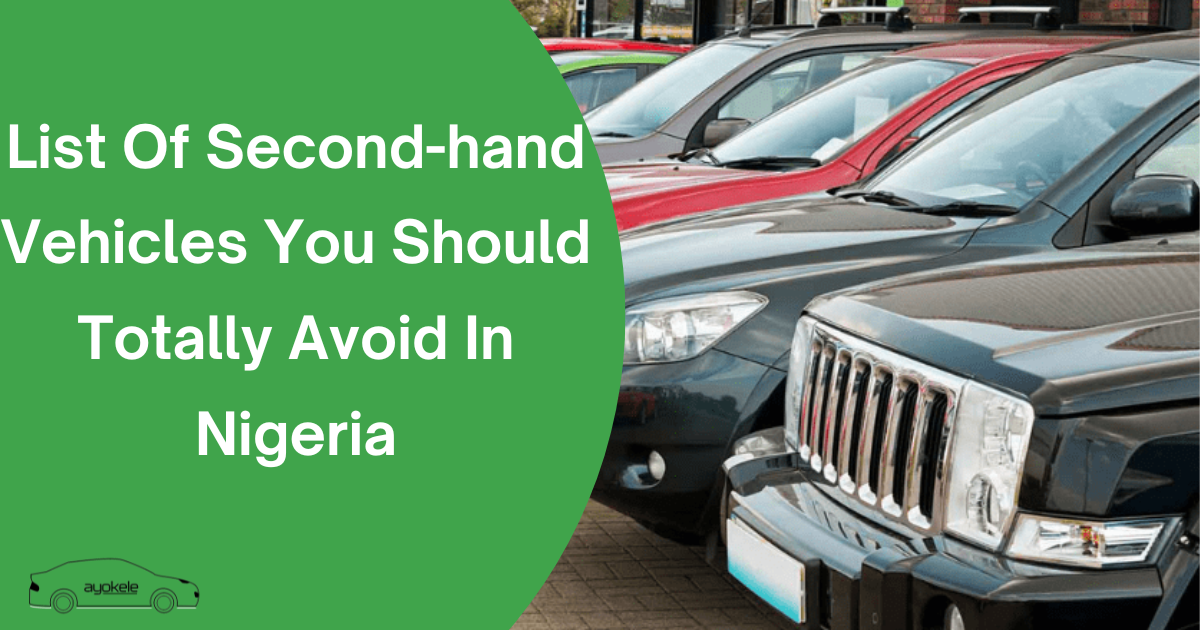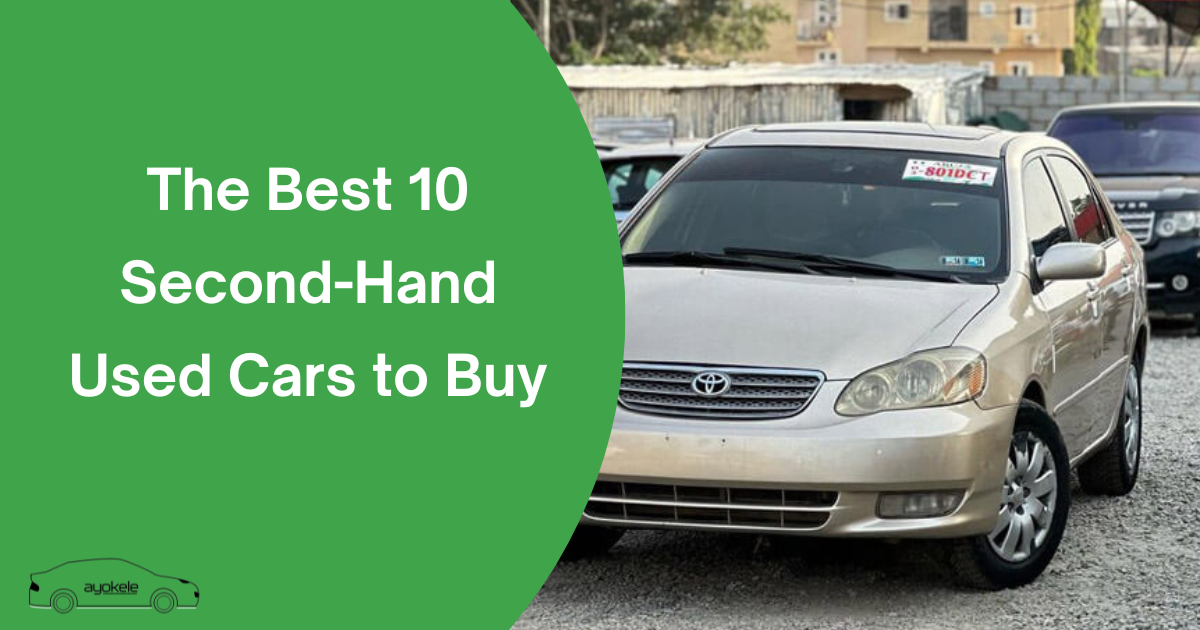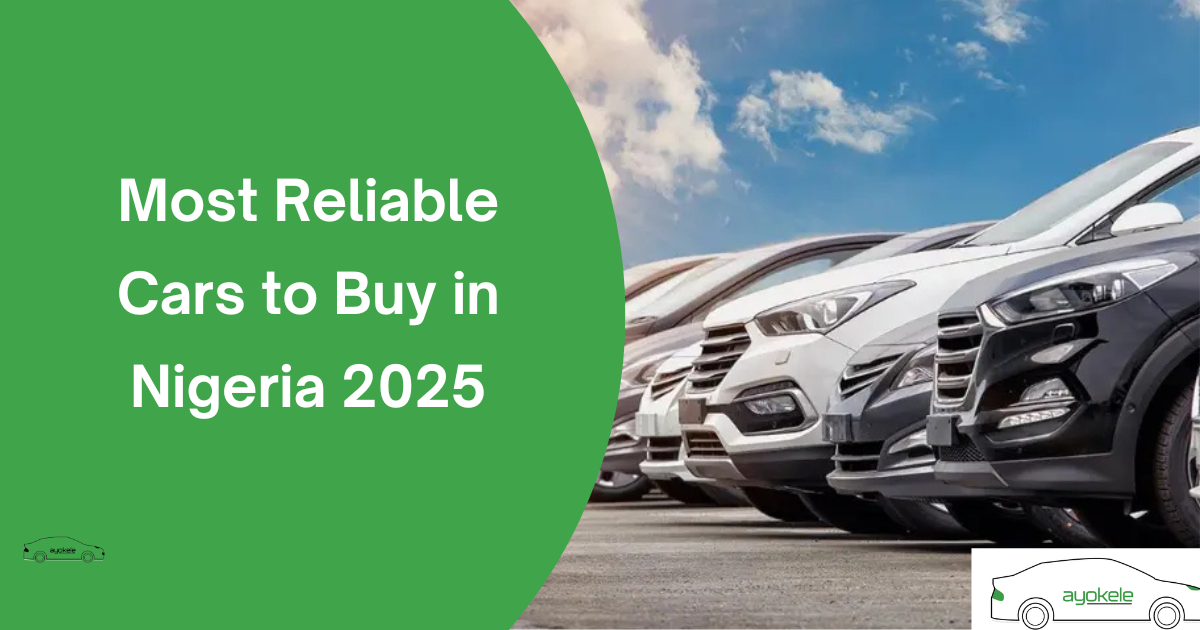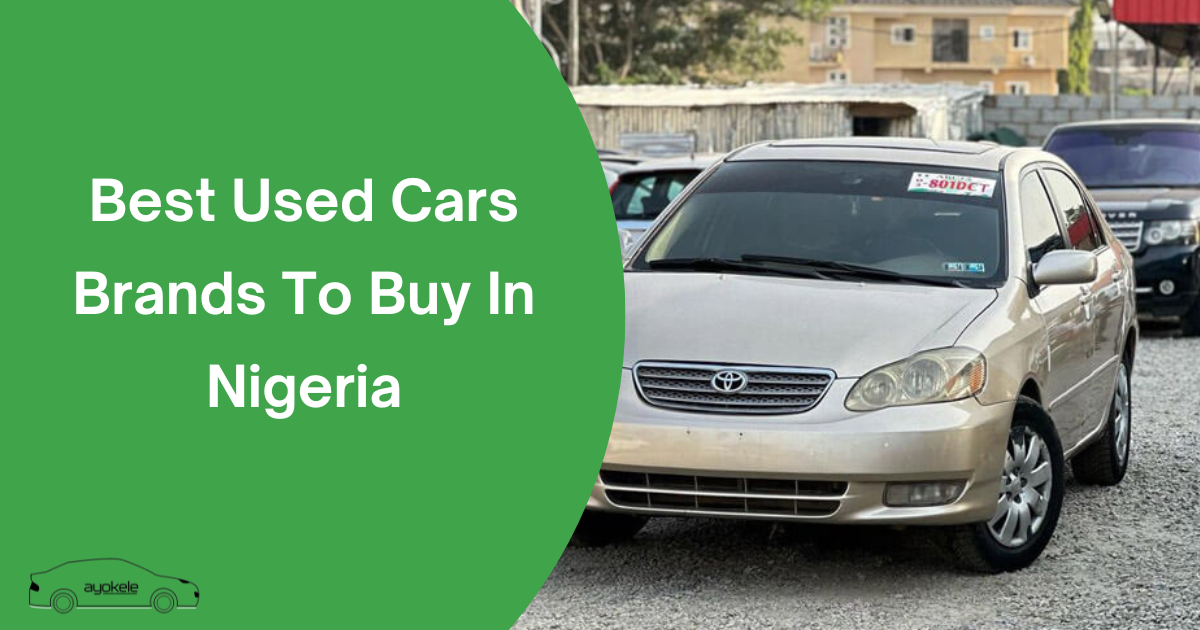Buying a second-hand car in Nigeria can be a smart and cost-effective, but not all used cars are worth the investment. Some vehicles come with constant mechanical problems, high maintenance costs, and poor fuel efficiency, making them a nightmare for buyers. While some second-hand cars offer great value, others can drain your finances due to frequent breakdowns and expensive repairs.
This article highlights a list of second-hand vehicles you should totally avoid in Nigeria. It focuses on models known for their unreliability, costly spare parts, and unsuitability for Nigerian roads. If you’re planning to buy a used car, knowing which models to avoid will help you make a better decision and avoid unnecessary stress.
Factors That Make a Second-Hand Car a Bad Choice
1. High Maintenance Costs: Some second-hand cars require expensive repairs and specialized mechanics, making them costly to maintain. If a vehicle has parts that are difficult to find or require frequent servicing, it can quickly become a financial burden. Cars with complex engine designs, electrical faults, or unreliable transmissions are particularly problematic. A good second-hand car should have spare parts that are affordable and readily available in Nigeria. If a car model requires importing parts frequently or has a history of expensive breakdowns, it’s best to avoid it.
2. Poor Fuel Efficiency: Fuel consumption is a major concern in Nigeria, where fuel prices fluctuate regularly. Some second-hand cars are notorious for high fuel consumption, making them expensive to run daily. Vehicles with large engines or outdated fuel systems tend to burn fuel quickly, leading to high operational costs. Before purchasing a used car, it’s important to research its fuel economy rating. Cars with bad fuel efficiency are not ideal for long-term use, especially in cities with heavy traffic where fuel consumption is higher.
3. Frequent Mechanical Issues: Some car models are known for constant breakdowns and mechanical faults. Common issues include overheating engines, weak transmissions, faulty electrical systems, and poor suspension. These problems not only make driving stressful but also increase repair costs over time. A second-hand car should be reliable and durable, with a strong reputation for longevity. If a car is known for needing repairs every few months, it’s best to avoid it, as these costs can add up quickly.
4. Bad Resale Value: Some cars depreciate faster than others, meaning they lose value quickly. If a car has a bad reputation for reliability, buyers will avoid it, making it hard to resell in the future. Vehicles with limited demand in the market or those known for excessive repairs often struggle to find buyers. Choosing a second-hand car with strong resale value ensures that you can sell it for a reasonable price when you decide to upgrade. Avoid cars with low demand or negative reviews from past owners.
5. Unsuitability for Nigerian Roads: Nigeria has many rough roads, potholes, and flooding issues, which makes some cars unsuitable for long-term use. Vehicles with weak suspensions, low ground clearance, or fragile engines will struggle to withstand the harsh driving conditions. A second-hand car should be able to handle Nigerian road conditions without frequent damage. If a vehicle is designed for smooth highways and doesn’t perform well on rough roads, it will require frequent repairs, making it a bad investment.
Second-Hand Cars to Avoid in Nigeria
1. 2005 Nissan Pathfinder
The 2005 Nissan Pathfinder is notorious for serious transmission problems, making it a high-risk option for second-hand buyers. Many owners have reported issues with the radiator leaking coolant into the transmission, which leads to complete transmission failure. Fixing this issue is extremely expensive, and replacement parts are not always easy to find.
In addition to transmission failures, the 2005 Nissan Pathfinder suffers frompoor fuel efficiency and overheating problems, especially in Nigeria’s hot climate. If you’re looking for a durable SUV, avoiding this model and considering more reliable alternatives like the Toyota 4Runner or Honda Pilot is best.
2. Chrysler PT Cruiser
The Chrysler PT Cruiser is widely considered one of the worst cars ever produced, and it’s even worse when purchased as a second-hand vehicle. One of its biggest flaws is poor engine reliability, with common issues like engine misfires, overheating, and oil leaks. Many owners also complain about electrical failures, causing problems with the dashboard, power windows, and sensors.
Spare parts for the PT Cruiser are hard to find in Nigeria, and repairs are costly. On top of that, the car has poor resale value, meaning once you buy it, you may struggle to sell it in the future. If you want a compact car, you better choose a Toyota Corolla or Honda Civic.
3. Land Rover LR3
While Land Rover is known for making luxury SUVs, the LR3 is one of the least reliable models in their lineup. This car is plagued with air suspension problems, which cause the vehicle to sit unevenly or completely fail, requiring expensive replacements. Additionally, the electronics in the LR3 are prone to malfunctions, affecting everything from the dashboard to the power windows.
Another major issue is the cost of maintenance. The LR3’s spare parts are expensive, and most mechanics in Nigeria are unfamiliar with fixing its complex engine system. The Toyota Land Cruiser or Prado is a much better option for those who want a rugged and reliable SUV.
4. Volkswagen Touareg (2004–2010 Models)
The Volkswagen Touareg may look stylish and powerful, but it is a maintenance nightmare when purchased as a second-hand car. One of the biggest issues is its complicated electrical system, which frequently develops faults. Owners also report frequent transmission failures, sensor malfunctions, and engine overheating.
Spare parts for the Touareg are expensive, and most Nigerian mechanics lack the expertise to fix its complex problems. The car’s fuel consumption is also very high, making it expensive to run daily. If you want a German SUV, the BMW X5 or Mercedes-Benz ML is more reliable.
5. Peugeot 407
Many Nigerian buyers avoid the Peugeot 407 due to its fragile suspension system. The rough roads in Nigeria are too much for this car to handle, leading to frequent shock absorber and bushing failures. The engine also develops overheating problems, especially in hot weather conditions.
Another major drawback is the lack of widely available spare parts. Since Peugeot cars are not as popular as Toyota or Honda in Nigeria, getting replacement parts can be both difficult and expensive. Instead of the Peugeot 407, buyers should consider more reliable sedans like the Toyota Camry or Honda Accord.
Tips for Choosing a Reliable Second-Hand Car
1. Research the Car’s Reliability: Before buying a second-hand car, research its track record for durability and common issues. Some car models are known to last for years with minimal repairs, while others develop serious mechanical problems after a short period. Look for reviews from past users, expert ratings, and online forums to see if the car has any major complaints or recalls. It’s also important to consider how well the car performs under Nigerian road conditions. A car that works well in Europe or the U.S. may not handle Nigeria’s heat, bad roads, or fuel quality.
2. Inspect the Car Thoroughly: Never buy a second-hand car without properly inspecting it. Check for rust, dents, and signs of repainting, as these could indicate past accidents or flood damage. Look under the hood to inspect the engine, battery, and fluid levels. Test the lights, wipers, air conditioning, and dashboard functions to ensure they work properly. A good practice is to bring a trusted mechanic to help assess the car’s condition. Many issues may not be visible to the average buyer, but an experienced mechanic can detect potential problems before you make a purchase.
3. Check the Car’s History and Documents: A reliable second-hand car should have complete and verifiable documents. Ask for the Vehicle Identification Number (VIN) and use it to check the car’s accident history, mileage records, and previous ownership. Some sellers may tamper with the odometer to make a high-mileage car appear newer, so verifying records is essential. Also, confirm that the seller has all necessary legal documents, including the original purchase receipt, registration papers, roadworthiness certificate, and customs clearance (if imported). Avoid buying cars with missing or suspicious paperwork, as they could be stolen or have outstanding debts.
4. Take It for a Test Drive: A test drive is one of the most important steps when buying a second-hand car. Drive on different road conditions, including smooth roads and rough terrain, to see how the car handles. Pay attention to strange noises, difficulty in steering, or delays in acceleration, as these could indicate hidden mechanical problems. Also, check the brakes to ensure they respond quickly without making grinding or squeaking sounds. A car that struggles on a short test drive is likely to develop bigger issues after purchase.
5. Consider the Cost of Maintenance and Spare Parts: Some second-hand cars may be cheap to buy but expensive to maintain. Always choose a car with affordable and easily available spare parts. Toyota and Honda models, for example, have a strong market presence in Nigeria, meaning their parts are easy to find. Avoid cars with specialized or imported parts, as they can be difficult to source and costly to replace. Additionally, check if local mechanics are familiar with repairing the model to avoid challenges with servicing.
Buying a second-hand car in Nigeria requires careful research and inspection to avoid costly mistakes. Some cars may seem like a great deal at first but come with hidden mechanical problems, high maintenance costs, and poor fuel efficiency. Knowing which models to avoid and what factors to consider can help you make a smart and reliable purchase.
Before deciding, always inspect the car thoroughly, verify its history, test-drive it, and consult a trusted mechanic. A well-informed choice will save you from future expenses and ensure you get a car that suits your needs and budget.




